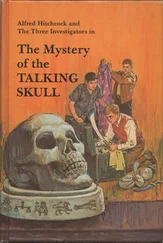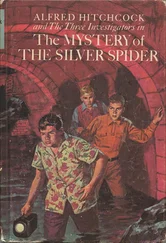Роберт Батлер - The Ironworkers' Hayride
Здесь есть возможность читать онлайн «Роберт Батлер - The Ironworkers' Hayride» весь текст электронной книги совершенно бесплатно (целиком полную версию без сокращений). В некоторых случаях можно слушать аудио, скачать через торрент в формате fb2 и присутствует краткое содержание. Жанр: Современная проза, на английском языке. Описание произведения, (предисловие) а так же отзывы посетителей доступны на портале библиотеки ЛибКат.
- Название:The Ironworkers' Hayride
- Автор:
- Жанр:
- Год:неизвестен
- ISBN:нет данных
- Рейтинг книги:5 / 5. Голосов: 1
-
Избранное:Добавить в избранное
- Отзывы:
-
Ваша оценка:
- 100
- 1
- 2
- 3
- 4
- 5
The Ironworkers' Hayride: краткое содержание, описание и аннотация
Предлагаем к чтению аннотацию, описание, краткое содержание или предисловие (зависит от того, что написал сам автор книги «The Ironworkers' Hayride»). Если вы не нашли необходимую информацию о книге — напишите в комментариях, мы постараемся отыскать её.
The Ironworkers' Hayride — читать онлайн бесплатно полную книгу (весь текст) целиком
Ниже представлен текст книги, разбитый по страницам. Система сохранения места последней прочитанной страницы, позволяет с удобством читать онлайн бесплатно книгу «The Ironworkers' Hayride», без необходимости каждый раз заново искать на чём Вы остановились. Поставьте закладку, и сможете в любой момент перейти на страницу, на которой закончили чтение.
Интервал:
Закладка:
It is true that the Santa Clara Valley is like one big orchard. After the earthquake, Sunnyvale started wooing San Francisco companies to reestablish themselves down here, offering free orchard land to build on. That’s how the ironworks got started. But mostly it’s fruit trees up and down and all around. Which is where the wagons end up, now that the singing is done and the giggling and low talk and spooning have begun. We head out into one of the big apricot orchards.
There is still a smell of sulfur smoke lingering in the air from the curing houses. “You remember last year?” Minnie says.
I know at once what she’s thinking and I know it’s because of the night sky and the acrid smell.
She says, “When we were all waiting to pass through the tail of Halley’s Comet? Did you think that life on Earth would come to an end?”
This happens to be a topic I know something about. When the astronomers decided that the tail was made up of deadly cyanogen gas I knew the numbers had to be in our favor, which was soon confirmed in news reports that plenty of people decided to overlook.
“Not for a moment,” I say.
“Not for a moment?” Minnie asks, real soft.
I blunder ahead. “The tail looked pretty substantial across the sky,” I say. “We passed through forty-eight trillion cubic miles of it, and of course it was highly reflective of the sunlight. But you have to understand there was only about one molecule of poison per cubic yard, and since it takes ten thousand sextillion cyanogen molecules to weigh one pound — these were all known numbers well in advance of the encounter — then a little figuring would have told us that the sum total of poison gas the planet Earth was about to pass through weighed barely half an ounce.”
Minnie’s arms emerge from beneath the blanket and she cradles the back of her head in the palms of her hands. She studies the sky and then says, “I was frightened for a while.” And I understand at once how it is that even correctly gathered and accurately calculated numbers can sometimes be irrelevant. I also understand how much I adore this Minnie of the willow leg. I turn a bit onto my side, gently, without disturbing her gaze at the sky, so that I can look at her. And there is a comet of desire streaking through me, its tail thick with something much denser than Halley’s poison. I am suddenly desperate to touch this girl, just lay a hand on her arm or brush at her hair with my fingertips— something —but I have neither the courage nor the confidence. And I am seized by a plan.
Even as Minnie goes on about her fear of the comet. “No matter what the scientists announced,” she says. “Scientists are constantly saying things and taking them back.”
I think of her artificial leg lying between us, hidden beneath the blanket.
“It’s not a rational thing,” she says.
The leg is part of Minnie, but it really isn’t.
“We’re not always rational creatures,” she says.
So it stands to reason that a touch there would not constitute an actual offense, that is to say the flagrant act of a masher. Though it’s a leg, after all, which is a powerful part of a girl indeed, it’s not really a leg, it’s a piece of wood, it’s really as if you were with a girl who walked with a cane and you touched the cane, which is no offense at all, and yet, from my own private comet’s point of view, it is her own personal sweet willow leg and it is attached to her and so it would still be a thrillingly tender connection to her while at the same time being a connection that no one in the world would know about, not even her, especially under a blanket, and even if they did know about it, it’s not like touching the actual girl.
“Sometimes you have to face a difficult thing,” she says.
I turn my attention to my left hand, but the hand is only too willing to dash ahead and I glance down the length of the blanket, gauging the contours, and my hand slithers along humpbacked under the cloth, like a mole making for the roses, which in this case is a place just below her artificial knee.
“You think you might die,” Minnie says, “and even if that never was so, just the thinking of it is more or less the same.”
I am drawing near and I fix on her profile, edged in moonlight, though as beautiful as she is, my attention is elsewhere.
Moles are blind, but they have other highly refined senses and so it is with my hand, which expertly arrives on the scene and lifts and curls and descends, slowly, delicately, and Minnie sighs and says, “I didn’t have it too bad, though.”
Then I touch her. Or it. Or more precisely her skirt, the cloth is rippled beneath my palm, and her wooden leg is further within, a distant thing still, which is all right, I am very happy.
“Did you know that people actually took one look at the comet and died?” Minnie says. “Heart attacks, mostly.”
My hand settles in. I surround Minnie’s leg. I even squeeze it, ever so faintly.
“There was a woman named Ruth Jordan in Taladega, Alabama,” Minnie says. “I read all this in the newspapers. She stepped onto the porch of her home and she looked and fell over dead. And there was another woman, in St. Louis, who was fine looking at the comet thinking it a cloud, but when they told her what she was seeing, she died.”
I squeeze Minnie’s leg again. And I realize I was actually thinking too much both those times, thinking about squeezing and thinking about having squeezed, and all the while I didn’t actually experience the act, so I squeeze her leg again, trying to concentrate just on feeling it. Then I move my way up to the knee and even across it — Zack said the wooden part goes far up — and I feel my way back down again, squeezing all along.
“Some were simply driven insane,” Minnie says. “Especially in Chicago, for some reason.”
Squeeze, squeeze, move along, squeeze some more. I’m a bit breathless now. I’m growing dizzy. I love her willow leg.
“Perhaps that’s just where the reporter was who wrote the story. But there were people on Chicago streetcars praying and weeping about the end of the world.”
Now I slow down for a moment. I make the squeezes long and lingering. Here, sweet knee, take this long caress.
“That’s not necessarily insane, I suppose,” Minnie says. “Something more like religious ecstasy, I guess. But there were suicides. One woman, afraid of the gas of the comet, inhaled the gas from her lamp.”
Here, sweet thigh, just above the knee a long caress for you. And then another quick one further up, and then further down.
“Sometimes,” Minnie says, “we are compelled to embrace the thing we fear the most, don’t you think?”
But her face doesn’t turn to me with this question. It’s just as well. I wouldn’t be able to say much at the moment. It’s all I can do to keep my eyes from rolling back in my head in something like religious ecstasy.
“I can understand that, I suppose,” Minnie says.
I am vaguely aware of a stir, and I look down the length of the blanket and I nearly gasp. Mr. Mole is racing furiously up and down there, absolutely crazed. I watch for a moment in awe. Up and down the leg. Up and down. It’s my hand, I know. Frenzied with love. It’s my own hand. I can stop it, if I choose. And so I do. I concentrate on my hand and I have this bad news for it and I send out the message, and it stops, my hand. Though it’s still lying on her leg. Okay. I let myself have this one last touch.
Minnie turns her face to me. “Weren’t you a little afraid, even for a moment?” she says.
“Yes,” I manage to say.
“That’s natural,” she says.
I gently move my hand off her leg and back to my side. I focus on catching my breath.
Читать дальшеИнтервал:
Закладка:
Похожие книги на «The Ironworkers' Hayride»
Представляем Вашему вниманию похожие книги на «The Ironworkers' Hayride» списком для выбора. Мы отобрали схожую по названию и смыслу литературу в надежде предоставить читателям больше вариантов отыскать новые, интересные, ещё непрочитанные произведения.
Обсуждение, отзывы о книге «The Ironworkers' Hayride» и просто собственные мнения читателей. Оставьте ваши комментарии, напишите, что Вы думаете о произведении, его смысле или главных героях. Укажите что конкретно понравилось, а что нет, и почему Вы так считаете.





